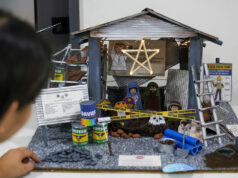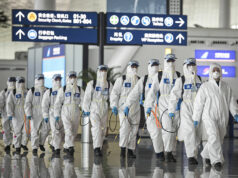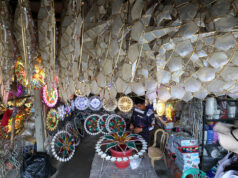By Tony Samson
Rising coffee consumption and the proliferation of coffee shops have little to do with nutrition or the alleviation of hunger. Coffee is seldom the main course, even when accompanied by chocolate chip cookies.
What brings people to coffee shops? And why do they stay longer there than in restaurants where they don’t tarry after finishing a meal?
An unpublished survey whose validity we cannot vouch for examines the behavior patterns and inclinations of coffee drinkers and provides insights into the human psyche and its ties with the bitter brew.
Most respondents (62%) state that lunch is usually over too fast and needs to be extended to coffee to prolong a meeting where business is not necessarily discussed since this part is already done before soup is served. The invitation to move to a coffee shop offers the advantage of allowing certain parties to go back to the office. Of the sample that extends the lunch meeting this way, over half (51%) convince the targeted counter-party to take coffee and dessert in another place within walking distance from the lunch venue.
The intent in this reduction of the attendees to just a couple and moving to another venue becomes clear as a non-related agendum is proposed with the coffee mate, hence the expression — Do you want to have coffee? This invitation for sharing a brew has Freudian overtones as coffee is considered both a stimulant and a diuretic. All coffee places are therefore near toilets or have one in the premises which is usually open to all gender classifications, though not at the same time.
Coffee by itself is a drink that is bitter which later describes how a relationship turns, even when sweeteners such as doughnuts are added to the mix. In most of these bonding coffee moments, the couple are work mates and seldom have coffee together in the office. Seventy-one percent of such pairings have a ready template for text messages: Do you want another cup?
What about solo coffee drinkers? This significant segment of the “true brew” accounts for 17% of the sample. It is useless to check if these percentages add up to 100% even with a margin of error of plus or minus 3%, since the categories sometimes overlap. It is possible that certain coffee couples are reduced to becoming solos with either a late cancellation (sorry, I am switching to tea) or even a walkout, usually by the female. (I’m not comfortable with the way you look at me when you sip your coffee, especially the way you hold the stirrer.)
As for determined soloists, 42% camp out at a table in the coffeeshop, working on their notebooks or phones. They choose a location near an electric plug. Most (53%) use the coffee place with its available wi-fi as an office where they answer e-mails and send out job applications. Their average stay in the shop is two hours and 13 minutes. Their orders are usually calibrated to the minimum amount needed for wi-fi access, consisting of plain coffee (small) and a bagel or corned beef croissant. These food items serve as props to show that they are paying customers. They avoid locking eyes with the plate clearers.
A minority of soloists (12%) emulate coffee drinkers who merely want to sit back and relax like those who sip coffee at the Champs Elysees in Paris. They sit outside the air-conditioned store where human traffic is higher. They observe the ebb and flow of varied characters as they meditate on the drug menace (26%), safety of bonds (12%), and the keto diet (3%).
Most male solo drinkers not busy with computers are just watching out for svelte ladies in short skirts, and below the age of 30. Many of them (38%) are retired and unemployed and easily mistaken for predatory old men, who may or may not be morally upright. There’s nothing wrong with longevity, except for the absence of appointments.
Coffee is ritualistic more than nutritional, though the brew is thought to have medicinal properties to prevent throat cancer but possibly harmful to pregnant women as the unborn babies may be affected by the brew’s attribute of preventing drowsiness and stimulating alertness. (Stop kicking.)
The brewing habit may move back to the home… as the traffic gets worse.
Tony Samson is Chairman and CEO, TOUCH xda.



